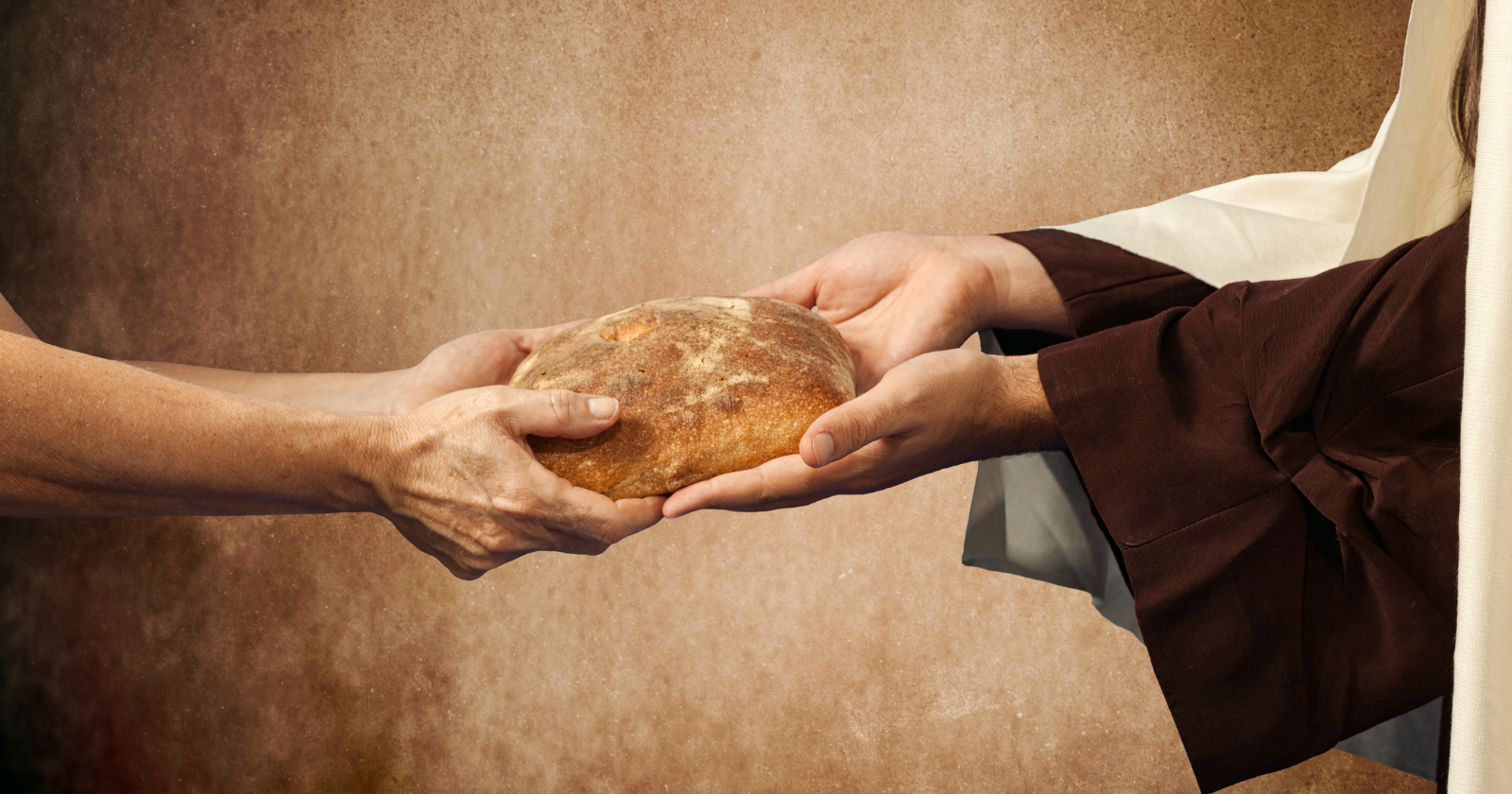The battle between our expenses and income can often feel like a tug of war. If you’re feeling the financial strain, consider this: adopting a minimalist lifestyle can drastically reduce your stress.
Why minimalism? Because it’s all about making conscious choices. It’s not about living with the bare minimum, but rather identifying and eliminating excess. It allows us to focus on what truly matters in life.
From the Christian perspective, minimalism aligns with Biblical teachings – “For we brought nothing into the world, and we can take nothing out of it” (1 Timothy 6:7). By embracing minimalism, we can learn to be content and find joy in simplicity, rather than material possessions.
In this article, I’ll guide you through how minimalism, as a Christian, can help alleviate your financial stress. Let’s explore how less can truly be more.
1) Less is more
The beauty of minimalism is that it’s not just a trend, it’s a lifestyle choice. And it’s one that can significantly lighten your financial load.
Often, we get caught up in the cycle of buying more and more things, thinking they will bring happiness or status. But this can lead to unnecessary stress when our expenses start to outweigh our income.
This is where the minimalist lifestyle comes into play. It encourages us to rethink our needs versus wants, to prioritize experiences over material possessions, and to find contentment in simplicity.
From a Christian perspective, this aligns with Bible teachings such as Hebrews 13:5 – “Keep your life free from love of money, and be content with what you have”. Minimalism in this sense can be a practical way to live out these teachings.
When we shift our focus from acquiring things to nurturing relationships and experiences, we often find that our expenses naturally decrease. Not having to worry about maintaining or upgrading possessions reduces financial stress and allows us to focus on what truly matters.
So if you’re looking for a way to trim your expenses without feeling deprived, consider minimalism. Remember: less can truly be more.
2) My own journey towards financial peace
Allow me to share a bit of my own story. I used to be the kind of person who was always on the lookout for the latest gadgets, the trendiest clothes, and the most luxurious vacations. I thought that by having these things, I was successful and happy.
But as my expenses piled up, so did my stress. I was working hard just to pay off my credit card bills and loans. The happiness I felt from purchasing new things was fleeting, replaced quickly by worry about how I was going to afford it all.
That’s when I discovered minimalism. The idea of living with less appealed to me, not just for its financial benefits but also for its spiritual alignment with my Christian faith. The Bible encourages us to “store up treasures in heaven” (Matthew 6:20), not on earth.
So I started to declutter my life. I sold the gadgets I didn’t need, donated clothes I barely wore, and started prioritizing experiences over possessions. It wasn’t easy, but it was liberating.
As weeks turned into months, I noticed a significant decrease in my expenses. More importantly, my financial worries were replaced with a sense of peace and contentment. The simplicity of minimalism had not only helped me reduce my expenses but also brought me closer to living a life that resonated with my Christian values.
Minimalism might not be for everyone, but it’s certainly worth considering if high expenses are causing you stress. Living with less can indeed lead to more – more peace, more joy, and more financial freedom.
3) The link between clutter and stress
Have you ever felt overwhelmed just by looking at a messy room? It turns out, there’s a scientific reason for this. Research from the Princeton University Neuroscience Institute found that physical clutter competes for your attention, leading to decreased performance and increased stress.
In the context of minimalism, this clutter isn’t limited to physical items. It extends to financial clutter too – unnecessary expenses that compete for our hard-earned money and attention. By cutting back on these expenses, we can reduce not only our financial stress but mental stress too.
The Christian perspective reinforces this idea even further. In Matthew 6:24, it says “No one can serve two masters…You cannot serve both God and money.” By decluttering our finances and focusing less on material possessions, we can devote more of our attention to our faith and the things that truly matter.
So next time you’re feeling stressed, consider if clutter – both physical and financial – is contributing to your anxiety. Remember, minimalism isn’t about getting rid of everything, it’s about making room for what truly enriches your life.
4) The power of contentment
In a world driven by consumerism, finding contentment can be a challenge. We’re constantly bombarded with messages that we need more to be happy – a larger house, a newer car, the latest tech gadgets. But this constant craving for more often leads to financial stress and discontent.
Minimalism challenges this mindset. It encourages us to find contentment in what we already have rather than constantly chasing after what we don’t. It teaches us that the key to happiness isn’t found in possessions, but in appreciating the simple joys of life.
This ethos is echoed in the Christian teachings as well. In Philippians 4:11-12, Paul writes that he has learned to be content in any circumstance, whether he has plenty or is in need. This scripture encourages us to find peace and satisfaction in God, not in material wealth.
By finding contentment in what we already have, we can reduce our expenses by not feeling the need to constantly upgrade or buy new things. This not only reduces financial stress but also fosters a sense of gratitude and fulfillment. Minimalism and contentment go hand-in-hand – both encouraging us to appreciate what we have rather than longing for what we don’t.
5) Embracing the freedom of less
Living a minimalist lifestyle can offer a sense of freedom that’s hard to find in our consumer-driven culture. It’s the freedom from the burden of possessions, the freedom from unnecessary expenses, and the freedom to focus on what truly matters.
When we’re not tied down by excessive possessions or high expenses, we have more time, energy, and resources to invest in relationships, experiences, and causes we care about. This aligns with the Christian principle of stewardship – responsibly managing our resources.
In Luke 12:15, Jesus warns us to “Watch out! Be on your guard against all kinds of greed; life does not consist in an abundance of possessions.” Minimalism helps us heed this warning and focus on the abundance of life rather than an abundance of possessions.
By embracing minimalism, we can gain the freedom to live a life that aligns with our values and beliefs. This lifestyle can drastically reduce financial stress and allow us to live more intentionally. So if you’re feeling weighed down by high expenses, consider how embracing less could lead to more freedom.
6) The joy of giving
One of the beautiful outcomes of living minimally is the opportunity it creates for generosity. With fewer expenses and less attachment to material possessions, we often find ourselves with more to give.
Generosity is a core value in the Christian faith. In Acts 20:35, Paul recalls the words of Jesus, “It is more blessed to give than to receive.” By curbing our own unnecessary expenses, we can contribute more meaningfully to causes that touch our hearts or help those in need.
This act of giving not only aligns with our faith, but it can also provide a deep sense of joy and fulfillment. There’s something incredibly heartwarming about knowing that your resources are being used to make a difference in someone else’s life.
Embracing minimalism doesn’t just benefit us by reducing financial stress, it also enables us to spread love and kindness to others. In this way, living with less can indeed lead to living more – more compassionately, more generously, and more joyfully.
7) Learning to trust
I remember a time when I was so caught up in my financial worries that I lost sight of my faith. I was consumed by anxiety over bills, debts, and the fear of not having enough. This fear led me to hold onto every penny, and every possession, tightly.
But then I stumbled upon Matthew 6:26 – “Look at the birds of the air; they do not sow or reap or store away in barns, and yet your heavenly Father feeds them. Are you not much more valuable than they?” These words struck a chord within me.
I realized that my worry was not only causing me stress but was also a sign of my lack of trust in God’s provision. Adopting a minimalist lifestyle helped me to let go of this fear. By trimming down my expenses and learning to live with less, I started to trust more – in God’s provision, in the value of experiences over possessions, and in the peace that comes from living simply.
This shift from fear to trust didn’t happen overnight, but it has been one of the most liberating aspects of my journey towards minimalism. It’s helped reduce not just financial stress, but also the mental and emotional stress that comes with constant worry.
8) The value of simplicity
In a world that often equates complexity with success, there’s something profoundly refreshing about simplicity. Minimalism champions this concept, encouraging us to strip away the non-essential and focus on what truly matters.
Simplicity can extend into all areas of our lives, including our finances. By simplifying our expenses, we can eliminate financial stress and gain a clearer understanding of our spending habits.
The Bible also highlights the value of simplicity in Proverbs 15:16 – “Better is a little with the fear of the Lord than great treasure and trouble with it.” This verse encourages us to value a simple, God-fearing life over one filled with wealth and trouble.
By choosing simplicity over complexity, we can reduce our expenses, lessen our financial stress, and live a more peaceful and purpose-driven life. Minimalism helps us realize that the simplest things often hold the greatest value.
9) Prioritizing what truly matters
At the heart of minimalism and the Christian faith is a deep understanding of what truly matters in life. Both encourage us to shift our focus from material possessions to love, relationships, experiences, and faith.
By reducing our expenses and embracing minimalism, we’re not just alleviating financial stress. We’re also making a deliberate choice to prioritize what is truly important over temporary material gain.
Jesus said in Matthew 6:21, “For where your treasure is, there your heart will be also.” Minimalism invites us to consider where our treasures lie and encourages us to invest in those things that enrich our hearts rather than our closets.
So if you’re feeling overwhelmed by high expenses, remember that the journey towards financial peace isn’t just about cutting costs. It’s about realigning your priorities and choosing a life that reflects what truly matters to you.
Final reflection: It’s about values
The essence of minimalism and its potential to alleviate financial stress isn’t just about discarding things or cutting back on expenses. At its core, it’s a shift in values – from materialism to contentment, from complexity to simplicity, from fear to trust.
This shift aligns closely with Christian teachings. 1 Timothy 6:6-7 says, “But godliness with contentment is great gain. For we brought nothing into the world, and we can take nothing out of it.” Minimalism, in many ways, mirrors this principle – valuing contentment and simplicity over material possessions.
It invites us to re-evaluate our priorities and make conscious choices that reflect what truly matters to us. Whether it’s spending less on possessions and more on experiences, giving generously, or finding joy in simplicity, the underlying principle remains the same – a life less focused on possessions is often a life more abundant in peace and fulfillment.
So as you reflect on your own financial stress and how to alleviate it, consider the principles of minimalism. Consider how aligning your lifestyle and spending habits with your values could bring about a profound sense of peace and fulfillment. After all, true wealth isn’t about what we own; it’s about who we are and what we value.











